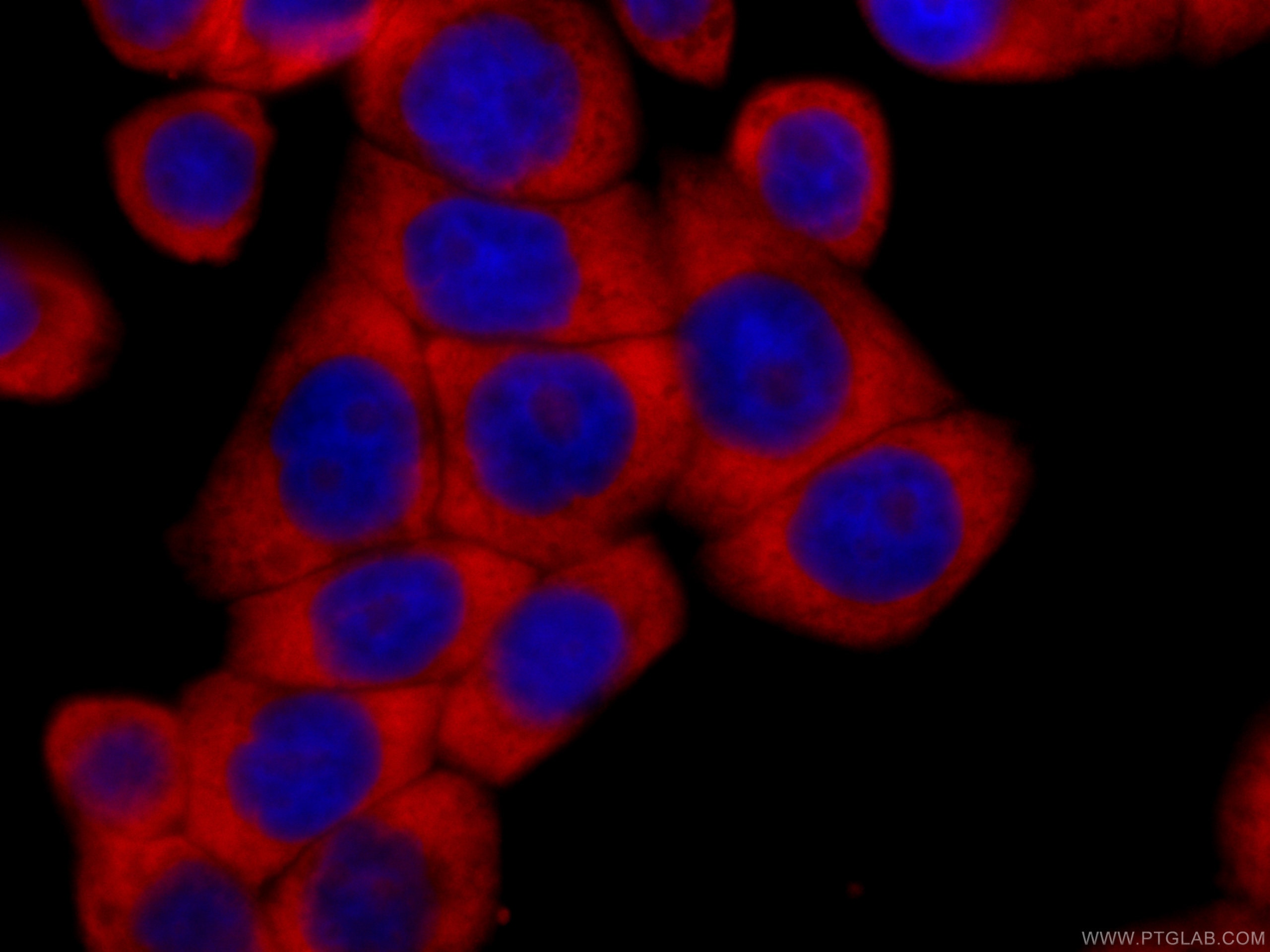Tested Applications
| Positive IF/ICC detected in | HeLa cells |
Recommended dilution
| Application | Dilution |
|---|---|
| Immunofluorescence (IF)/ICC | IF/ICC : 1:50-1:500 |
| It is recommended that this reagent should be titrated in each testing system to obtain optimal results. | |
| Sample-dependent, Check data in validation data gallery. | |
Product Information
CL594-66056 targets RACGAP1 in IF/ICC applications and shows reactivity with human, mouse, rat samples.
| Tested Reactivity | human, mouse, rat |
| Host / Isotype | Mouse / IgG1 |
| Class | Monoclonal |
| Type | Antibody |
| Immunogen | RACGAP1 fusion protein Ag6944 Predict reactive species |
| Full Name | Rac GTPase activating protein 1 |
| Calculated Molecular Weight | 632 aa, 71 kDa |
| Observed Molecular Weight | 71 kDa |
| GenBank Accession Number | BC032754 |
| Gene Symbol | RACGAP1 |
| Gene ID (NCBI) | 29127 |
| RRID | AB_2883495 |
| Conjugate | CoraLite®594 Fluorescent Dye |
| Excitation/Emission Maxima Wavelengths | 588 nm / 604 nm |
| Form | Liquid |
| Purification Method | Protein G purification |
| UNIPROT ID | Q9H0H5 |
| Storage Buffer | PBS with 50% Glycerol, 0.05% Proclin300, 0.5% BSA, pH 7.3. |
| Storage Conditions | Store at -20°C. Avoid exposure to light. Stable for one year after shipment. Aliquoting is unnecessary for -20oC storage. |
Background Information
Rac GTPase-activating protein 1 (RACGAP1), localized in the mitotic spindle, has guanosine triphosphatase-activating protein (GAP) activity for the Rho family GTPases. RACGAP1 has an important influence on the initiation of cytokinesis, control of cell growth and differentiation, regulation of spermatogenesis, and tumor metastasis.
Protocols
| Product Specific Protocols | |
|---|---|
| IF protocol for CL594 RACGAP1 antibody CL594-66056 | Download protocol |
| Standard Protocols | |
|---|---|
| Click here to view our Standard Protocols |



